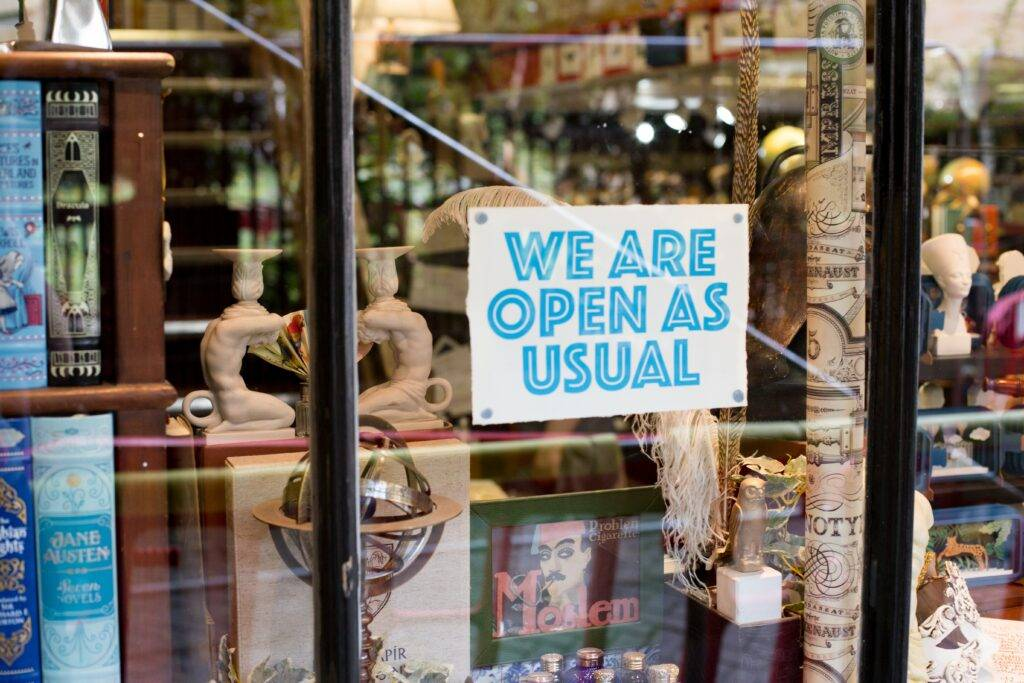Customer Satisfaction in the UK and the Impact of COVID

Table of Contents
Since the pandemic began, many businesses have reported a change in customer satisfaction. The uncertainty caused by prolonged lockdown periods has caused many customers to change their shopping habits.
People looking for safety and ease have gotten used to online shopping. As a result, many businesses have developed or expanded their online services. However, many other businesses have struggled with making the move online.
Face-to-face customer experiences continue to be vital to customer satisfaction. Online services cannot and should not ever replace in-person sales.
The impact of COVID on customer satisfaction in the UK has not been positive. But the best ways to keep customers happy post-pandemic may not be clear to many businesses.
Here we detail how COVID has impacted customer satisfaction. We will also go into some of the best ways businesses can react to changing customer habits.

How has COVID impacted customer satisfaction in the UK?
The COVID-19 pandemic has caused serious problems for many industries that rely on in-person interactions. Because of the difficulties these industries have faced, it is no surprise that their customer service has decreased in quality.
Three industry sectors, Banks and Building Societies, Tourism, and Transport, report customer satisfaction falling at least one point since January of 2020.
This fall in customer satisfaction is due to a variety of reasons. However, one primary issue is the way that these companies handle customer complaints. For example, the Transport sector faced difficulties when the travel bans started. Airlines especially are having a difficult time keeping their customers happy.
Also, due to more people shopping online, many customer satisfaction complaints have been based around these digital experiences. Many job sectors have not yet improved their services to support the new levels of online traffic.

How has COVID changed consumer behaviour?
According to UKCSI, more than 30 percent of customers have reported thinking more about what they choose to spend money on.
The Deloitte Consumer Review notes that customers prefer a customised experience while shopping. Users want a unique experience tailored to their needs and interests.
In addition, customer behaviours have changed due to different emotional and financial needs.
During the pandemic, many people lost their jobs or changed jobs. Twenty-two percent of consumers report a decrease in their financial or physical health. A large percentage reported a decline in their mental health as well.
A shift in the way businesses treat consumers who have lived through these difficulties can keep these customers coming back, despite their worries.
Addressing these consumer needs is important for businesses to continue to grow throughout the pandemic and beyond.
The link between customer satisfaction and business growth is well proven. That’s why it is vital to update business practices along with these changing customer needs.

How can businesses adapt to changing customer experience expectations?
Businesses were forced to shut their doors with hardly any warning while knowing little about the year to come. Customer’s expectations changed very suddenly, and many businesses weren’t able to adapt as quickly as they had to.
This shift has manifested in a need to support consumers’ desire to use businesses digitally. However, there are also other business methods that can be put in place to address customers’ changing needs.
The UKCSI references many things a business can do to help their customers in general. They include:
- Keeping clear communication with customers.
- Making sure that customers contacting the business always get a reply.
- Thinking about more vulnerable customers.
- Looking after the employee experience and employee happiness.
The Deloitte review says the importance of individual attention and a unique experience for every customer, calling this addressing an “audience of one.”
For in-person interactions, this can mean friendly customer service. According to PWC, customers note a pleasant, attentive experience as one of the most important parts of shopping.
PWC also notes that customers always expect digital shopping to be problem-free and as efficient as in-person shopping. Customers usually immediately notice when something goes wrong with a website.
Many businesses have chosen to address these issues by offering customer service chat functions. With a chat feature, customer service representatives help make a consumer’s website usage easier. This way, a business can uphold the unique experience of their “audience of one.”

Which companies have the highest customer satisfaction scores after COVID?
Despite the challenges, customer-centric companies have continued to improve their customer satisfaction scores relative to their peers. The sectors of retail, food, and leisure, as one might expect, saw improvements - as did online giants such as Amazon and Netflix.
Highest Ranked Companies in the UK for Customer Satisfaction
- First Direct (Banks & Building Societies)
- John Lewis (Retail)
- M&S (Retail)
- Amazon.co.uk (Retail)
- M&S (Food)
- Tesco Mobile (Telecommunications & media)
- Pets at Home (Retail)
- Netflix (Leisure)
- Aldi (Food)
- Costa Coffee (Food)
Of the companies that were the most improved in customer satisfaction, Ocado was the fastest growing retailer. Ocado sales went up by 36.1%.
Another majorly improved seller was Iceland, which is now the third highest ranked food retailer after M&S Food and Aldi.

In Conclusion
While COVID-19 has seriously changed the consumer experience for many in the UK, businesses have been working hard to adapt.
Being aware of consumers’ ever-changing needs can help businesses maintain excellent customer satisfaction scores.
Because of the uncertainty of the pandemic, many customers face changing circumstances and need an increased online presence and special care.
The primary takeaway for businesses that serve these customers should be to uphold a unique, friendly, and efficient experience for all customers.
To deliver this, businesses must continue to focus on capturing customer feedback at key touchpoints and across the entire customer journey.

Tom Sutton
Co-founder, TRACX
Tom is the co-founder of TRACX, a no-code marketing platform that allows local business owners to collect customer feedback and create engaging marketing campaigns. With over 17 years of experience in entrepreneurship, product development, and marketing for businesses large and small, Tom is currently responsible for developing product and marketing strategies for TRACX.